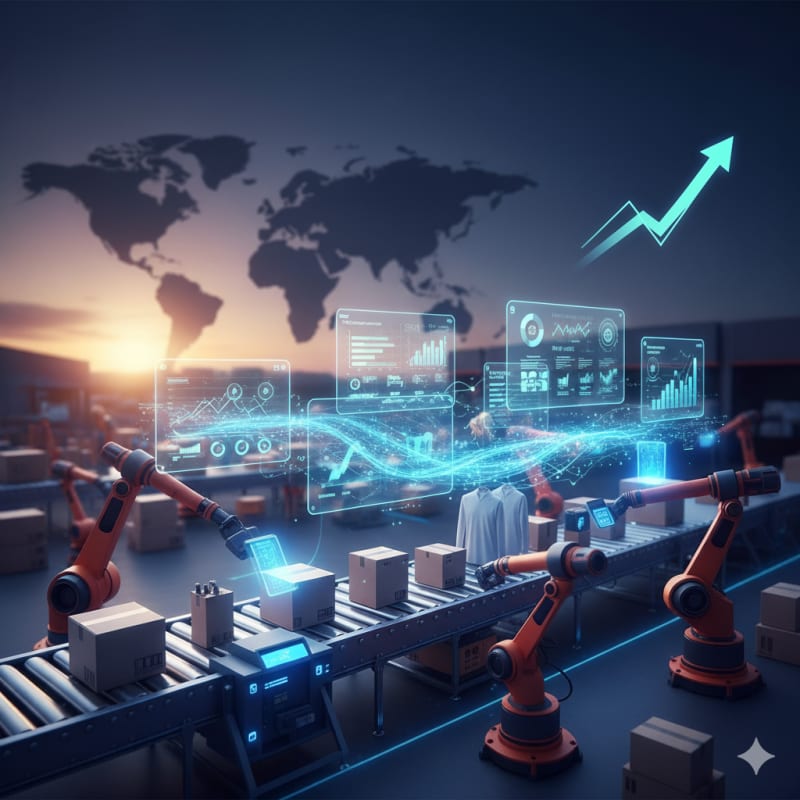The rise of digital commerce has reshaped customer expectations and the way retailers operate. Shoppers today want quick delivery, personalized recommendations, effortless navigation, and consistent experiences across multiple channels. Meeting these expectations manually becomes increasingly difficult as a business expands. This is where Artificial Intelligence (AI) is driving the next wave of retail automation, transforming how online stores manage operations and connect with customers.
AI is no longer just a supporting technology—it is becoming a core enabler of scalable retail models. From forecasting demand to optimizing inventory and offering real-time personalized shopping experiences, AI is playing a central role in improving efficiency, accuracy, and profitability across retail workflows.
Digital commerce generates massive streams of data: customer behavior, product movement, order statuses, marketing results, and more. Traditionally, interpreting this data required manual reporting and guesswork. AI, however, can analyze data instantly and accurately to detect trends, predict demand, recommend actions, and automate routine processes.
1. Personalized Customer Experiences
Shoppers engage more when the experience feels tailored to them. AI enables real-time personalization by analyzing browsing behavior, past purchases, and search patterns to display:
This leads to higher engagement, higher conversion rates, and stronger brand loyalty.
2. Smarter Product and Catalog Management
As retailers grow, managing product data across multiple platforms becomes challenging. AI-supported Product Information Management helps maintain clean, consistent, and up-to-date product data across every selling channel. It can classify products automatically, detect missing fields, optimize descriptions, and ensure pricing accuracy. This improves discoverability and reduces catalog errors.
3. Predictive Inventory & Demand Forecasting
AI forecasting models review sales history, seasonal shifts, promotions, and emerging trends to accurately predict future demand. This allows retailers to:
With better forecasting, inventory aligns more closely with real customer demand.
4. Automated Order and Fulfillment Processes
AI improves fulfillment efficiency by routing orders to the best warehouse or shipping partner based on location, availability, and delivery timelines. It can also trigger automatic updates, shipment notifications, and returns workflows. The result is faster processing and more transparent tracking—two factors that greatly impact customer satisfaction.
AI enhances business analytics by delivering insights that help retailers understand performance patterns and growth opportunities. Instead of manually compiling reports, AI highlights:
These insights guide smarter decision-making and long-term strategic planning.
The future of digital commerce will be shaped by retailers who can scale without increasing operational complexity. AI allows businesses to:
As AI continues to evolve, we will see more innovations such as:
Retail will move from being reactive to entirely predictive—anticipating customer needs even before they are fully expressed.
AI is redefining what’s possible in digital commerce and retail automation. By strengthening personalization, optimizing product and inventory management, streamlining fulfillment, and enhancing decision-making, AI is enabling retailers to operate smarter and scale more efficiently. The businesses that embrace AI today will be better prepared to meet tomorrow’s market demands and customer expectations.
The future of retail is intelligent, automated, and customer-centric—and AI is at the heart of that transformation.
